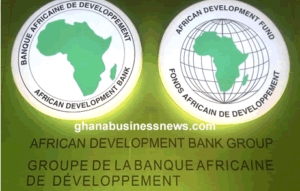UK government reviews support for AfDB
 The UK government is reviewing the effectiveness of the Department for International Development’s (DFID) financial support to the African Development Bank (AfDB) to reassess how this funding fits in with the UK’s aid priorities in Africa.
The UK government is reviewing the effectiveness of the Department for International Development’s (DFID) financial support to the African Development Bank (AfDB) to reassess how this funding fits in with the UK’s aid priorities in Africa.
The review is also looking at how effective the AfDB is at delivering UK aid and how well DFID ensures value for money for its contributions.
Since 2014, DFID has made annual average contribution to the AfDB of £205 million, which is 1.6 per cent of the UK’s overall aid programme.
The review is examining AfDB projects in five countries: Tunisia, Nigeria, Kenya, Uganda and Mali.
The review team will visit Nigeria and Uganda this month for field work and the AfDB headquarters in Abidjan to expand on evidence collected.
The Independent Commission for Aid Impact (ICAI) said DFID’s work with the AfDB was in line with the financial and technical support that the bank was providing to the poorest countries in Africa, and middle-income countries.
“Working with the AfDB Group also enables DFID to expand its reach to support vulnerable communities; the review is also relevant in view of possible wider lessons for DFID’s contributions to other multilateral and regional development banks,” the ICAI said in a statement.
The review is covering the period since 2014, which includes the 13th and 14th replenishments of the African Development Fund (ADF).
It includes an overview of the AfDB and also a look at, in one form or the other, all 17 of the Sustainable Development Goals that the AfDB lists in its Mission and Strategy Statement.
The review is focusing on specific themes such as fragility, financial leverage and “leave no one behind”, and sectors that had received the most funding in recent years – transport, power, agriculture, water, sanitation and hygiene.
The final report will be ready early next year.
The ICAI has been busy reviewing the UK’s overseas development assistance (ODA) now that there are 18 aid-spending departments and funds.
Since 2015, these government departments have been responsible for disbursing around a quarter of the £14 billion annual aid budget now spent outside DFID.
This was “creating a steep and complex learning curve for those involved,” the ICAI noted.
One ICAI review found that “departments are increasingly developing their understanding of how to use aid effectively, but more should be done to integrate learning into international development spending across government to ensure value for money”.
“Departments with new aid budgets are increasingly developing their understanding of how to use aid effectively – but more should be done to integrate learning into international development spending across government to ensure value for money,” the ICAI said.
In many of its reviews the ICAI said that applying learning to programmes “is fundamental to the quality, impact and value for money of UK aid”.
It added: “Our findings are intended to encourage departments to look in more depth at their own learning needs and capabilities.
“We also assessed how well aid-spending departments exchange learning with each other and with DFID.”
Source: GNA
